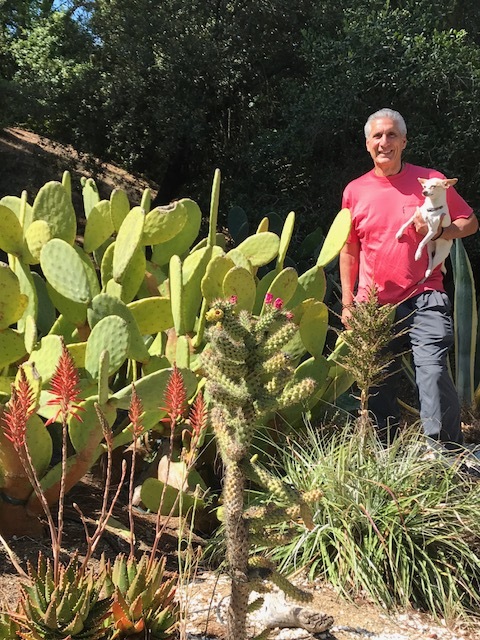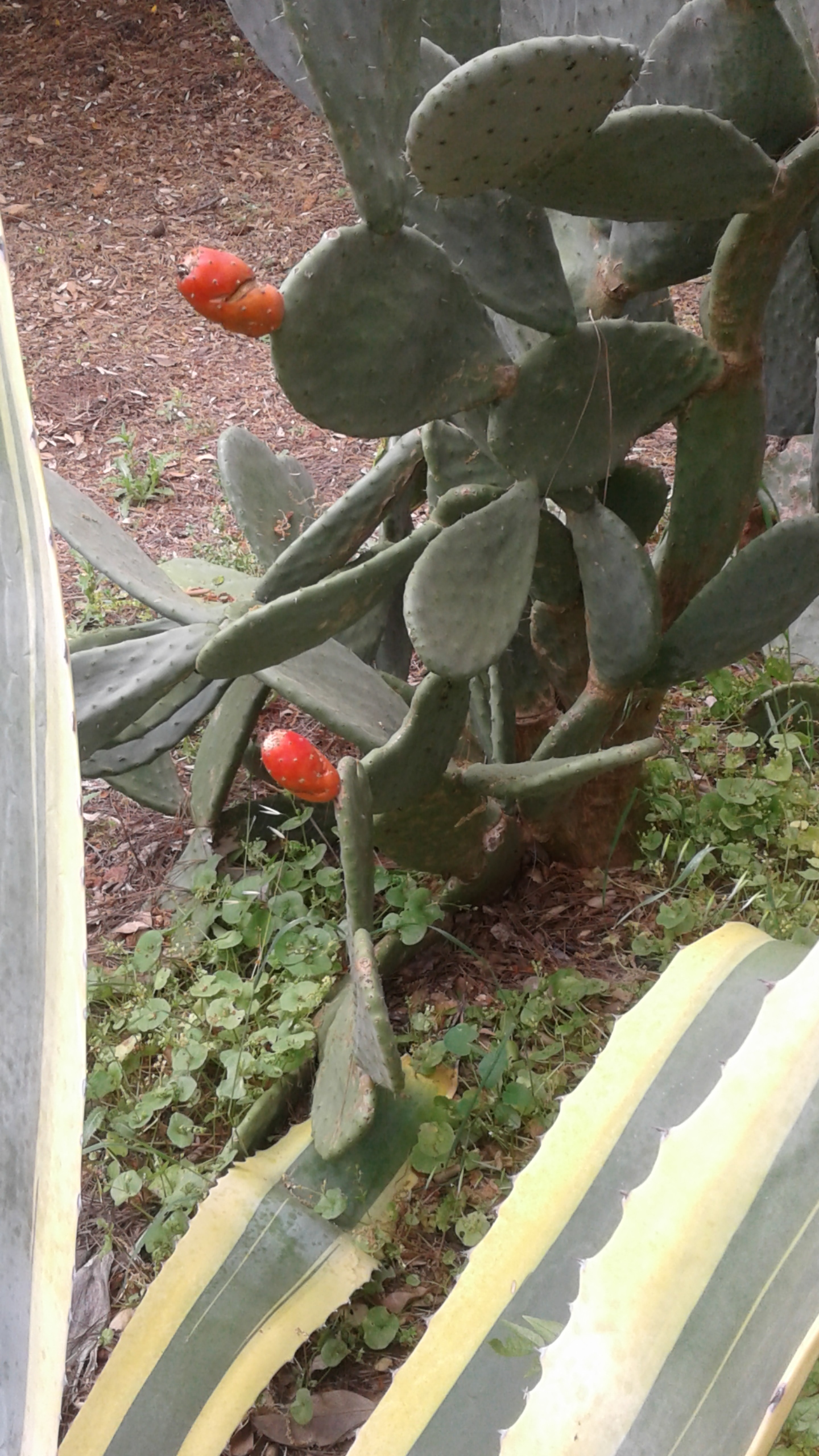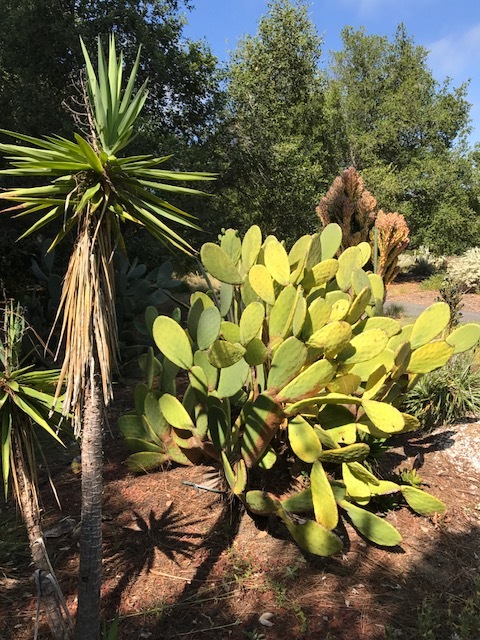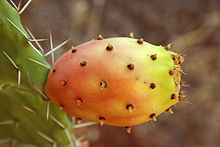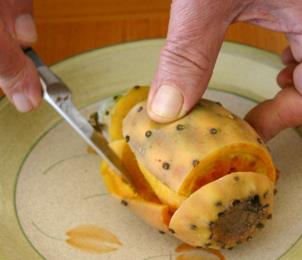My home office overlooks our community cactus gardens on each side of the walking trail Cecile and I mindfully walk on each day. It also reminds me of my late mother, Maria who grew up in Sicily, and loved eating the fruit of the cactus. How fitting that these mysterious succulent plants would become such a source of enjoyment in my retirement years.
I first became acquainted with this particular species of cactus plants as a young boy while visiting our family in the old country.
When I was 13, I drove my uncle’s Vespa and saw the cactus plants along the beach. I’m told they are a cheap and effective method of erosion control in the Mediterranean basin. Prickly pears are the fruit of the Opuntia cactus. My grandparents called them “Figidiini,” in Sicilian dialect. They can be eaten fresh, candied, mashed into marmalade, and can even be made into a prickly pear-flavored liqueur called “Ficodi.”
In those innocent days on the island, I attempted to pick a few of the prickly pears off the cactus plant—gloveless. My fingers prickled with pain for days afterwards. My mother had to pull them out with her tweezers. Every Sicilian family have laughingly told the story of American GIs in WWII, who plucked the fruit right off the cactus plant and bit into it. “Yikes.”:-)
We ate the fruit but not until the pinchy spines were peeled away by my nonna—and after it sat chilled in the refrigerator for a few hours. Unlike me, she knew what she was doing. When she cut back the peel, I was surprised to see the color of the prickly pear fruit, which ranged from bright yellow to orange, and evoked a fragrance of citrus. It “did,” look like a pear—with an indentity crisis. The juicy soft pulp contains tiny hard seeds that Sicilians simply swallow.
Their taste is similar to a sweet watermelon. They contain 85% water, are rich with Vitamin C, and have lots of other nutrients and phytochemicals. For people who want a little more kick to their fruit, Sicily make a prickly pear-flavored liqueur called “Ficodi” is produced. It has the flavor of a medicinal aperitif.
Opuntia Cactus are also seen scattered throughout the Israeli hillside and looks like a natural part of the Israeli landscape. They were actually imported to Israel from Arizona and New Mexico and planted to serve as natural barriers and dividers. In Israeli, the term Sabra (in Hebrew), alludes to the tenacious, thorny cactus plant with a thick skin that conceals a sweet, soft luscious interior. It is a term of endearment for Israeli Jews, who are referred to as being tough on the outside, but delicate and sweet on the inside.
In the Native American tradition, cacti represent protection, patience, strength and endurance. They can survive difficult conditions, their roots run wide and deep. They continue to flower in the face of adversity. It is a great metaphor for the human condition that reminds us that we are capable of being strong and resilient, that we can survive whatever life throws in front of us, that we can flourish in good times and bad.
Bryce Courtenay author of “The Power of One,” talks about the cactus plant in a section of his book that resonated with me and drives home this point:
"The cactus has all the blessings…It has humility, but is not submissive. It grows where no other plant will grow. It does not complain when the sun bakes it, or the wind tears it from the cliff or drowns it in the dry sand of the desert or when it is thirsty.
When the rain comes it stores water for the hard times to come. In good times and in bad it will still flower. It protects itself against danger, but it harasses no other plant. It adapts perfectly to almost any environment. It has patience and solitude. The cactus has properties that heal the wounds of mend and from it comes potions that can make man touch the face of God or stare into the mouth of hell. It is the plant of patience of solitude, love and madness, ugliness and beauty, toughness and gentleness.”
Postscript: Our neighbor, Lucy Vagonov, former chair of the landscaping committee at RInconada Hills is responsible for the installation of the cactus gardens that bring resident walking the trails and walking their dogs so much pleasure.
